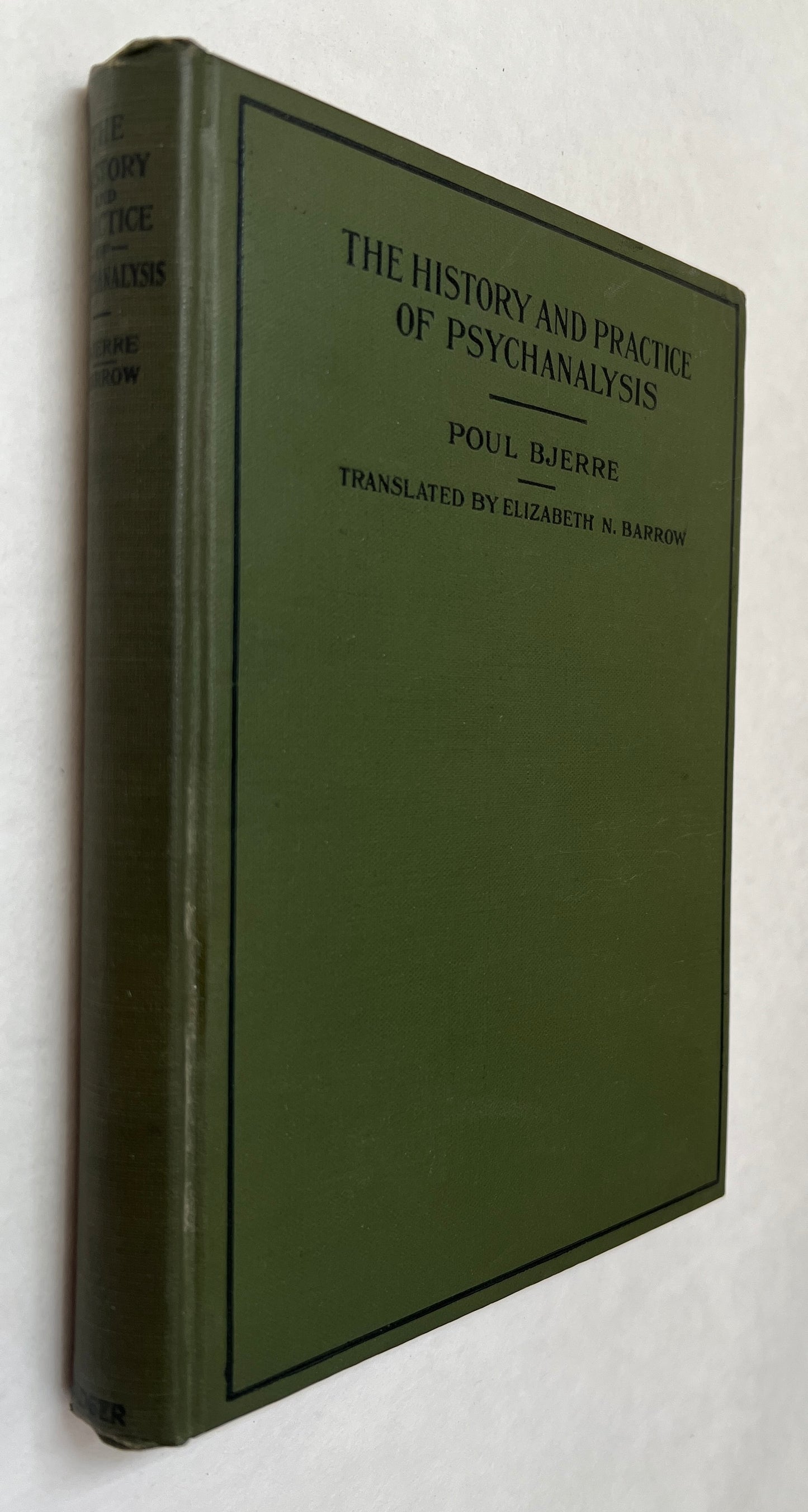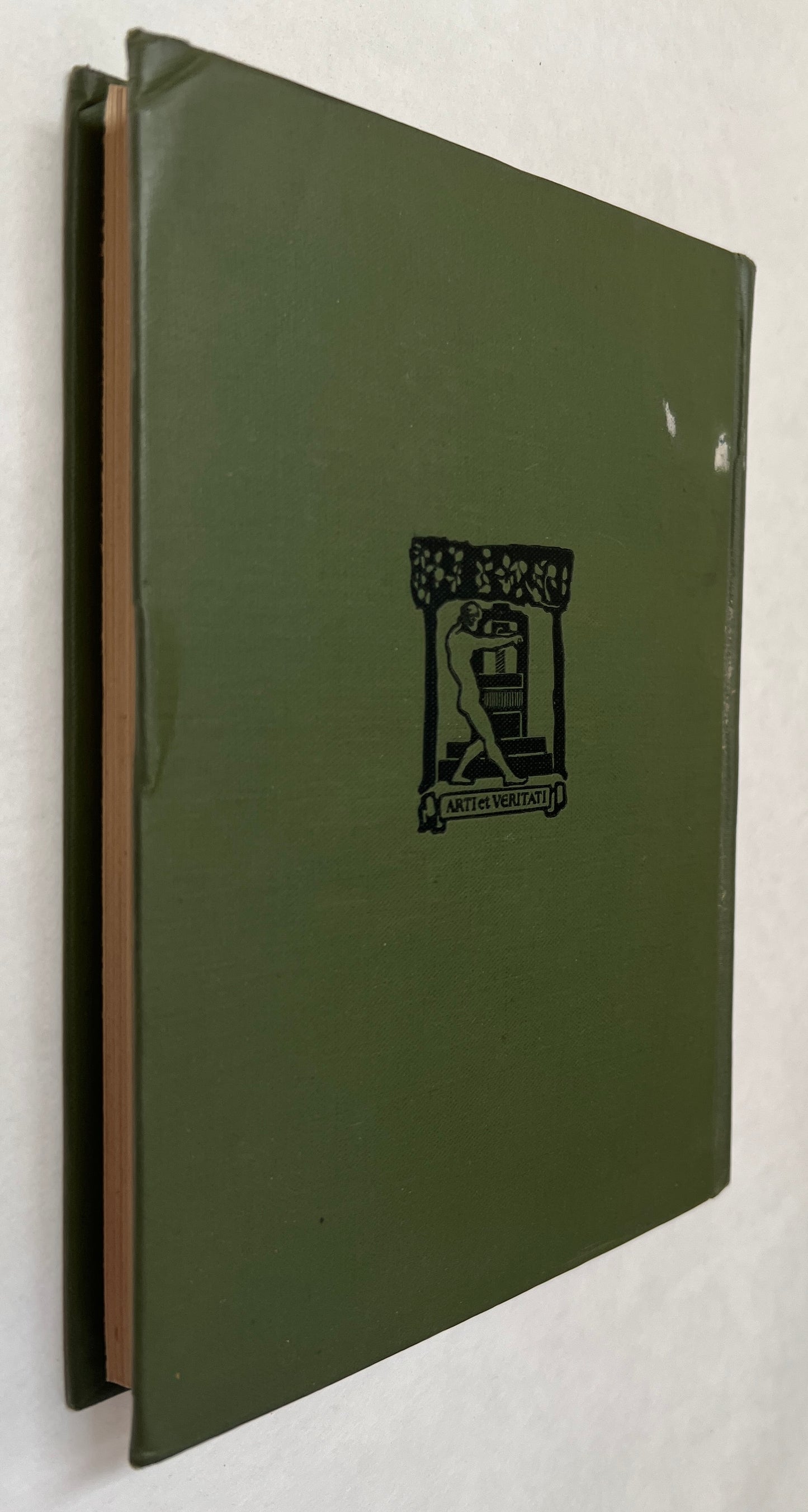Bjerre, Poul
The History and Practice of Psychoanalysis
The History and Practice of Psychoanalysis
Couldn't load pickup availability
Boston: R.G. Badger, (1916). First ed (presumed; no earlier printings indicated). Small octavo in dark green cloth; 294 pages, index. Near fine+. A very crisp copy. Hardcover.
Uncommon. Translation of: Studier i själsläkekonst. Date of 1916 to copyright page; no date to title page. ¶ Contents: Kant and Feuchtersleben -- Wetterstrand and the Nancy School -- Psychoanalysis as a science and method of treatment -- The Adler-doctrine concerning neurosis -- The nature of hypnosis -- The conscious versus the unconscious -- Extract from a case-history -- Points of view and outlooks.
"Poul Carl Bjerre (1876 – 1964) was a Swedish psychiatrist who was a native of Gothenburg. In 1907 he succeeded hypnotist Otto Georg Wetterstrand (1845–1907) at the latter's medical practice in Stockholm. He was the brother of Andreas Bjerre. Bjerre is credited for introducing psychoanalysis and Freudian psychiatric concepts into Swedish medicine, which he presented to a 1911 gathering of the "Order of Swedish Physicians". He would later distance himself from a number of Freudian ideas. Bjerre believed that the workings of the conscious mind were more important than those of the unconscious, and felt that Freud placed too much emphasis on an individual's sex life. He believed that it was important for the psychiatrist to "be human", and to view and treat his patient in an holistic manner. Bjerre was also a major advocate of hypnosis. His home in Vårsta Among his written works was an influential book which theorized on the recurring cycle of "psychic death and renewal" called Död och Förnyelse. He wrote a biography on Friedrich Nietzsche, and is remembered for his"—Wikipedia
Psychoanalysis -- history Psychoanalytic Theory Psychoanalysis Psychanalyse. psychoanalysis. Psychoanalysis.
Share




